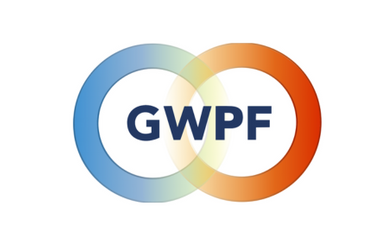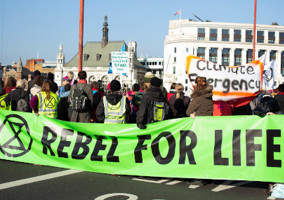The Charity Commission has concluded its compliance case into the Global Warming Policy Foundation (GWPF) after the climate change sceptic think tank made changes to its activities and relationships with third parties.
In May 2022, the Commission opened a case into GWPF following complaints from environmental campaigners about its output and funding, with further concerns raised in October of that year.
It said that after engaging with GWPF’s trustees on a range of regulatory issues over many months, it is now satisfied that their response has addressed the concerns.
The Good Law Project, a campaigning organisation, which has complained to the Commission about GWPF, said the regulator’s decision not to take further action was “startling”.
GWPF welcomed the case closure and said: “There are those who employ moral reasoning with little respect for opposing views”.
More balanced website content
GWPF, established in 2009 by former chancellor Nigel Lawson to “further public understanding of global warming”, has been the subject of multiple complaints over the years, including being accused of spreading misinformation about climate change.
During its inquiry, the Commission examined concerns including the educational value of GWPF’s research, its funding sources and relationship with a wholly-owned trading subsidiary and sister organisation.
The regulator looked at how GWPF ensures its output meets “appropriately rigorous standards of objective analysis and factual research to support the conclusions being presented”.
It said GWPF’s trustees “proposed, trialled and implemented a new system that enables a level of external review in preprint, allowing for comments, corrections and proposed amendments ahead of publication from experts and other interested parties”.
“The trustees also made important changes to the content of the charity’s website, which now displays links to a far wider range of sources of information on climate change including those that draw conclusions different to those presented by the charity, ensuring greater balance in the overall content of the charity’s website,” the Commission said.
GWPF has a wholly-owned trading subsidiary, Net Zero Watch, which was known as the Global Warming Policy Forum until October 2021.
The Commission examined concerns that GWPF was financially supporting Net Zero Watch and that the subsidiary had consistently operated at a loss.
However, it found no evidence to support these claims, saying that the trustees’ plan to end ownership of the subsidiary was “an appropriate further step”.
In 2022, the Guardian reported that GWPF received $210,525 in 2018 and 2020 from the Sarah Scaife Foundation through its US arm the American Friends of GWPF.
The Commission looked at whether GWPF had taken reasonable steps to ensure it received the largest share possible, given that it and the US organisation had a director in common.
It concluded that appropriate procedures were in place to handle conflicts of interest between both organisations and that the director had no involvement in funding decisions.
Assurances from trustees
The Commission said it received and accepted “strong assurances from GWPF’s trustees that the think tank “doesn’t accept donations from the energy industry or anyone with a significant interest in an energy company”.
“The charity demonstrated that its protocol for the acceptance of gifts prevents it from accepting donations from such sources,” it said.
“The regulator has seen no evidence to contradict this. The charity offered assurances that its sister organisation – American Friends of Global Warming Policy Foundation – operates the same policy.”
It added that GWPF’s trustees have decided to make public statements about the charity’s funding to reassure the public as to its independence.
Commission: ‘Our role isn’t to examine think tanks’ worldview’
Tracy Howarth, assistant director for casework at the Commission, said: “There are many charitable think tanks on our register, representing a range of intellectual traditions and outlooks.
“Our role isn’t to examine their worldview, but to ensure that charities demonstrate that they are furthering their purposes for the public benefit.
“All charities must comply with a range of legal obligations, which for educational charities includes ensuring balance across their outputs to allow people to make up their own minds.
“We have engaged with the Global Warming Policy Foundation on a range of regulatory issues in some detail and over many months. During that time, the charity has made changes and improvements both to its charitable activities, and its relationships with third parties.
“We expect the trustees to now fully implement the proposed changes. On that basis, we are satisfied the concerns raised are now resolved.”
GWPF: ‘We’ll continue to pursue our charitable objectives’
Jo Maugham, executive director of the Good Law Project, said: “Reading between the lines it is clear that GWPF committed multiple breaches of charity law.
“What is startling is the Charity Commission’s unfathomable desire to spare GWPF explicit criticism or impose regulatory sanction.
“There are proper questions to be asked about the notional regulator’s motivations.”
GWPF said it welcomed the Commission’s decision to close its compliance case.
Chair Jerome Booth said: “There are those who employ moral reasoning with little respect for opposing views.
“Sometimes they employ heavy-handed means to shut down debate and persecute and attack anyone with whom they disagree.
“When they happen to be wrong this can seriously hamper good decisions and policymaking.
“This educational charity was set up to help generate an informed and rational debate on energy and climate policies for the greater public good.
“We welcome the Commission’s findings and will continue to pursue our charitable objectives.”
Related articles











